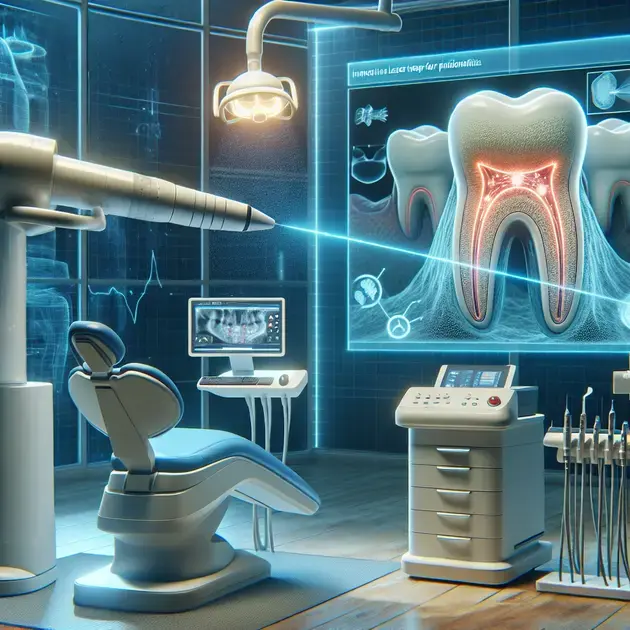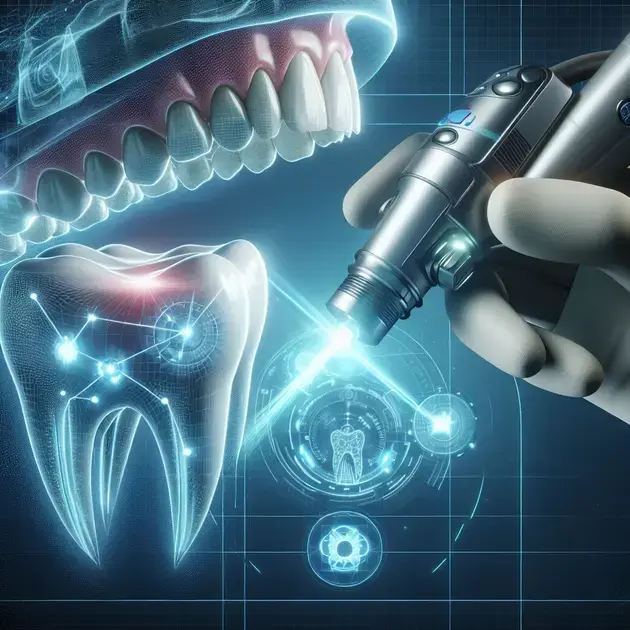When it comes to tackling periodontitis, finding an effective medication is crucial for combating this common gum disease. In this comprehensive guide, we will explore the latest advancements and treatments available for managing periodontitis.
From traditional antibiotics to innovative laser therapy, there are various options to consider in the quest for effective medication for periodontitis. Stay informed and empowered as we dive into the world of periodontal treatment strategies.

Understanding Periodontitis: An Overview
Periodontitis is a serious gum infection that damages the soft tissue and destroys the bone that supports your teeth. It can lead to tooth loss if not treated promptly. To understand periodontitis, it’s essential to know its causes, symptoms, and treatment options.
Causes:
Poor oral hygiene is the primary cause of periodontitis. When plaque builds up on your teeth and hardens into tartar, it can lead to gum inflammation. Other risk factors include smoking, hormonal changes in women, diabetes, medications that reduce saliva flow, and genetic predisposition.
Symptoms:
Symptoms of periodontitis include swollen or inflamed gums, gums that bleed easily, persistent bad breath, loose teeth, and receding gums. If you experience any of these symptoms, it’s crucial to see a dentist for a proper evaluation.
Treatment Options:
Treatment for periodontitis often involves deep cleaning procedures such as scaling and root planing to remove plaque and tartar from the teeth and gums. In some cases, antibiotics may be prescribed to help control the infection. Good oral hygiene practices and regular dental check-ups are essential for managing periodontitis.
Exploring Traditional Antibiotics for Periodontitis
Traditional antibiotics are commonly used in the treatment of periodontitis to help control bacterial infections and reduce inflammation in the gums. Understanding how these antibiotics work and their potential side effects is important for effective treatment.
Common Antibiotics:
Antibiotics such as doxycycline, metronidazole, and minocycline are often prescribed to combat the bacteria responsible for periodontitis. These antibiotics can be taken orally or applied directly to the infected gums.
Administration:
Your dentist will determine the appropriate dosage and duration of antibiotic treatment based on the severity of your condition. It’s essential to follow your dentist’s instructions carefully and complete the full course of antibiotics to ensure effectiveness.
Side Effects:
While antibiotics can be beneficial in treating periodontitis, they can also have side effects such as nausea, vomiting, diarrhea, and allergic reactions. It’s important to discuss any concerns or adverse reactions with your dentist promptly.
Innovative Approaches: Laser Therapy for Periodontitis
Laser therapy is a modern and innovative approach to treating periodontitis that offers several advantages over traditional methods. The use of laser technology can target and eliminate bacteria effectively while promoting faster healing and reduced discomfort for the patient.
Procedure:
During laser therapy for periodontitis, a dental professional will use a specialized dental laser to access and remove infected gum tissue and disinfect the periodontal pockets. The laser also helps to stimulate the regeneration of healthy gum tissue.
Benefits:
Laser therapy offers benefits such as minimal bleeding, reduced swelling, and shorter recovery times compared to traditional surgical procedures. It’s a less invasive option for treating periodontitis and can result in improved overall oral health.
Effectiveness:
Studies have shown that laser therapy can be as effective as traditional treatments for periodontitis while offering added benefits such as reduced post-operative pain and discomfort. It’s important to consult with your dentist to determine if laser therapy is the right option for your individual case.

Understanding Periodontitis: An Overview
Periodontitis is a serious gum infection that damages the soft tissue and destroys the bone that supports your teeth. It can cause tooth loss and affect your overall health if left untreated. The main cause of periodontitis is the bacteria found in plaque, a sticky film that forms on your teeth.
Common symptoms of periodontitis include swollen gums, bright red or purplish gums, gums that feel tender when touched, bleeding gums, receding gums, and persistent bad breath. If you are experiencing any of these symptoms, it is important to see a dentist for a proper diagnosis and treatment.
Treatment for periodontitis usually involves professional cleaning to remove the plaque and tartar buildup that causes the infection. In more severe cases, your dentist may recommend scaling and root planing, gum surgery, or laser therapy to effectively treat the condition and prevent further damage to your gums and teeth.
Preventing periodontitis involves maintaining good oral hygiene practices, such as brushing your teeth twice a day, flossing daily, using an antiseptic mouthwash, and visiting your dentist regularly for check-ups and cleanings. By taking care of your oral health, you can reduce your risk of developing periodontitis and other dental problems.
Exploring Traditional Antibiotics for Periodontitis
Traditional antibiotics are often prescribed to treat periodontitis and help eliminate the harmful bacteria causing the infection. These antibiotics work by killing the bacteria or preventing their growth, reducing inflammation and promoting healing of the gums.
Common antibiotics used to treat periodontitis include tetracycline, doxycycline, metronidazole, and amoxicillin. These antibiotics may be prescribed in pill form or as a mouth rinse, depending on the severity of the infection and your individual needs.
It is important to follow your dentist’s instructions when taking antibiotics for periodontitis, including completing the full course of medication even if your symptoms improve. Skipping doses or stopping treatment early can lead to antibiotic resistance and a recurrence of the infection.
In addition to antibiotics, maintaining good oral hygiene practices and undergoing professional dental cleanings are essential for effectively treating periodontitis and preventing it from recurring. Your dentist will work with you to develop a comprehensive treatment plan that addresses your specific needs and helps restore your oral health.
Innovative Approaches: Laser Therapy for Periodontitis
Laser therapy is a cutting-edge treatment option for periodontitis that offers a minimally invasive and highly effective solution for targeting and eliminating the bacteria causing the infection. This innovative approach uses concentrated light energy to remove diseased gum tissue and kill bacteria without the need for traditional surgery.
During laser therapy for periodontitis, your dentist will use a special dental laser to access and remove the inflamed gum tissue and bacteria from around the root of the tooth. The laser also helps to stimulate the regrowth of healthy gum tissue and promote faster healing without the need for sutures.
Benefits of laser therapy for periodontitis include reduced discomfort during and after the procedure, faster healing times, minimal bleeding, and less risk of infection compared to traditional surgical methods. Laser therapy is also a more precise treatment option, targeting only the affected areas while preserving healthy tissue.
Overall, laser therapy for periodontitis offers a safe and effective alternative to traditional treatments, with many patients experiencing significant improvements in their oral health and reduced symptoms of gum disease. Consult with your dentist to see if laser therapy is a suitable option for treating your periodontitis and restoring your smile.
Conclusion
Periodontitis is a severe gum infection that can lead to tooth loss and impact overall health if not treated promptly. The primary cause of periodontitis is the bacterial buildup in plaque on teeth. Recognizing symptoms like swollen gums, bleeding, and bad breath is crucial to seeking timely dental care for diagnosis and treatment.
Traditional antibiotics such as tetracycline and amoxicillin play a vital role in combating periodontitis by targeting and eliminating harmful bacteria, reducing inflammation, and aiding in gum healing. Adhering to the prescribed antibiotic regimen under dental supervision is essential to prevent antibiotic resistance and recurrence of the infection.
While traditional treatments like scaling and root planing are effective, laser therapy emerges as an innovative and minimally invasive option for periodontitis. Laser therapy offers benefits such as reduced discomfort, faster healing, and precise targeting of affected areas, leading to improved oral health outcomes and reduced gum disease symptoms for many patients.



